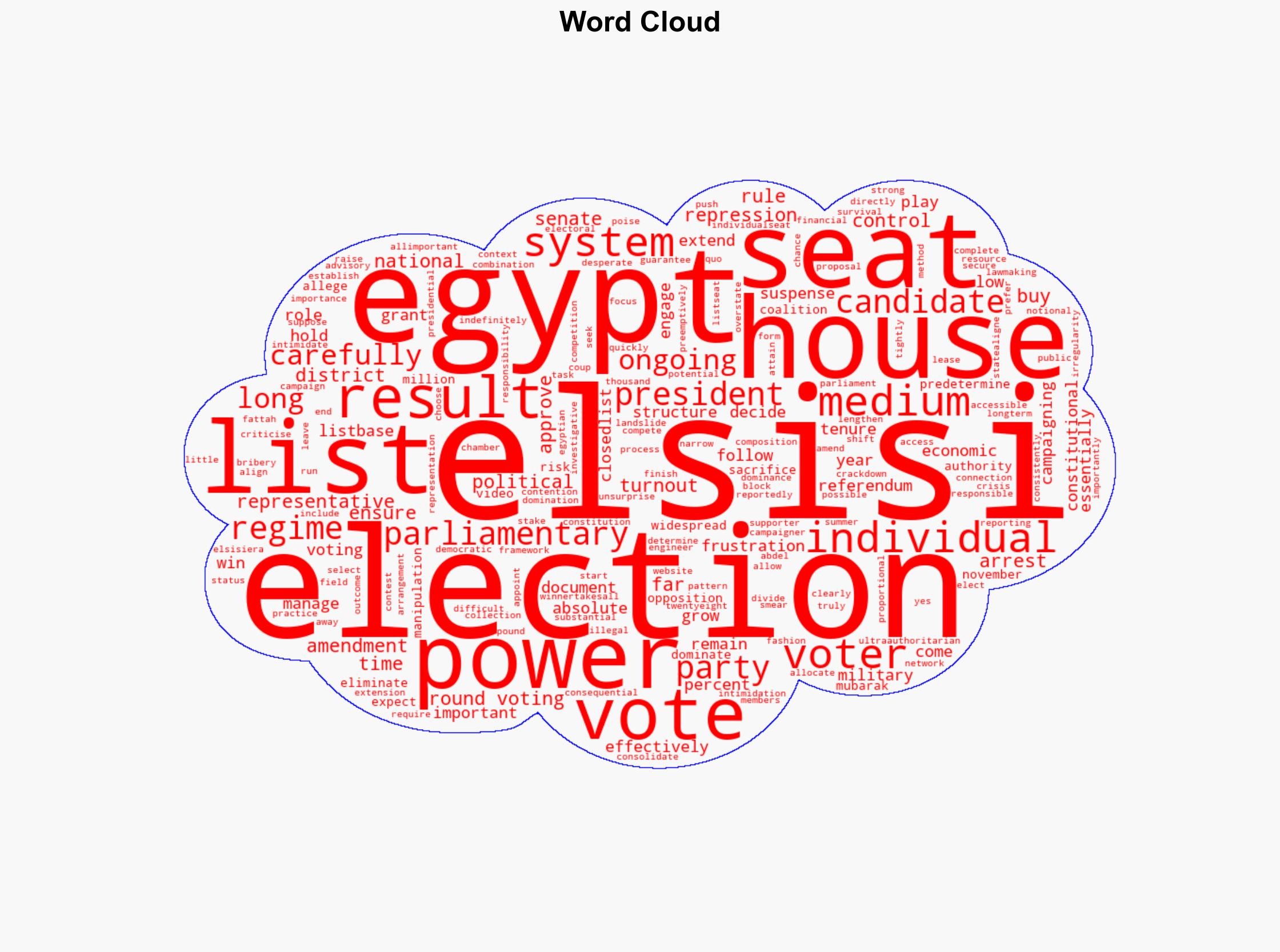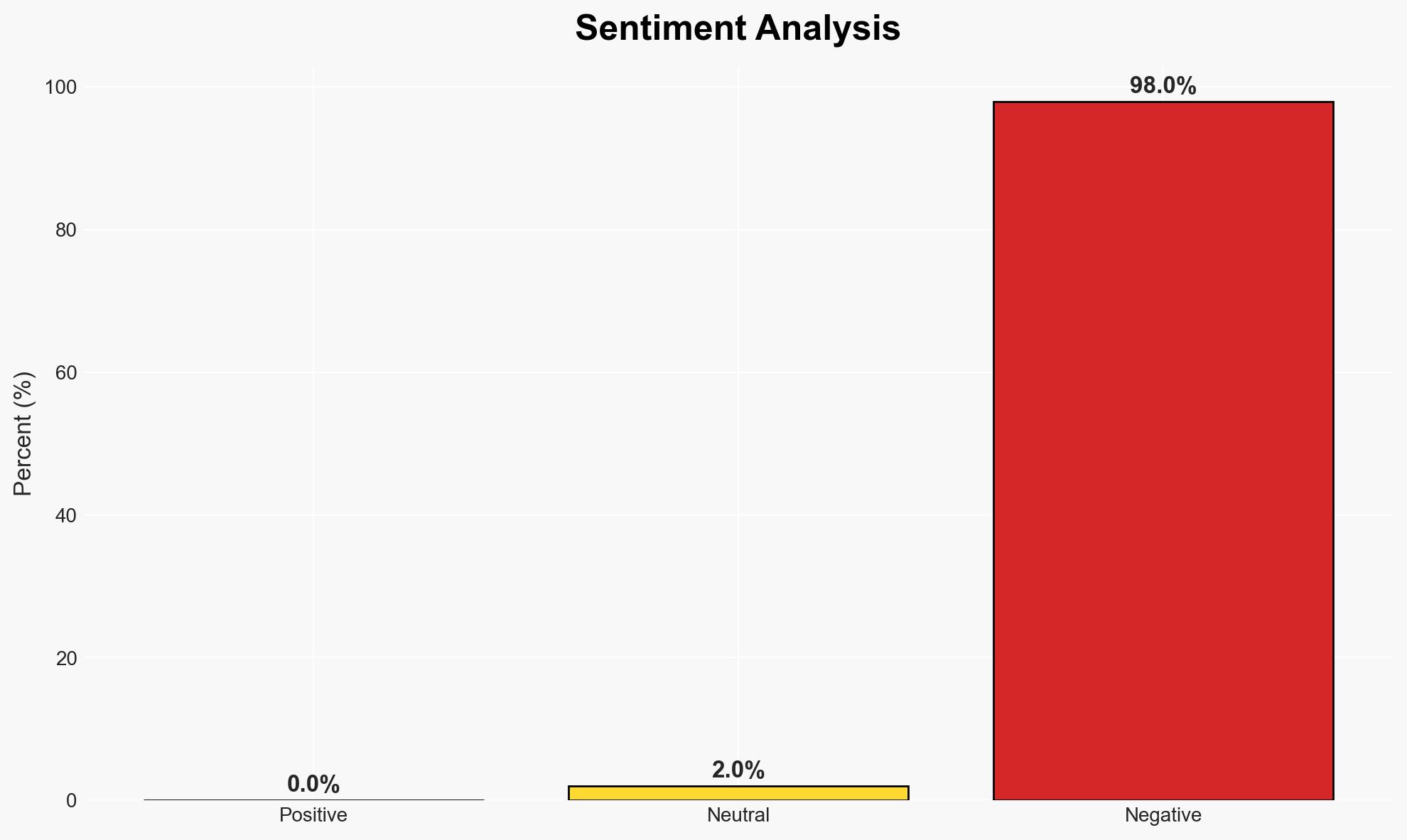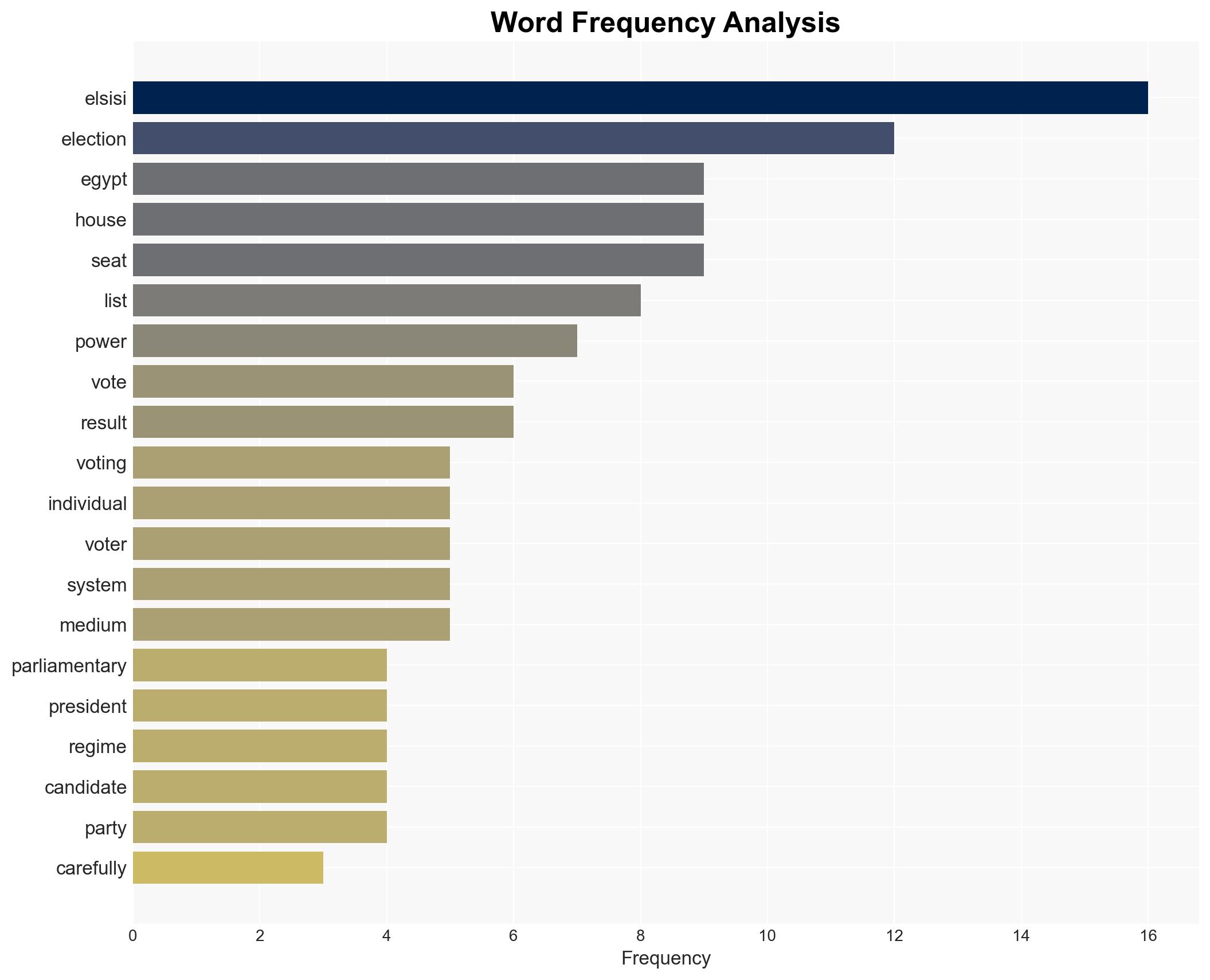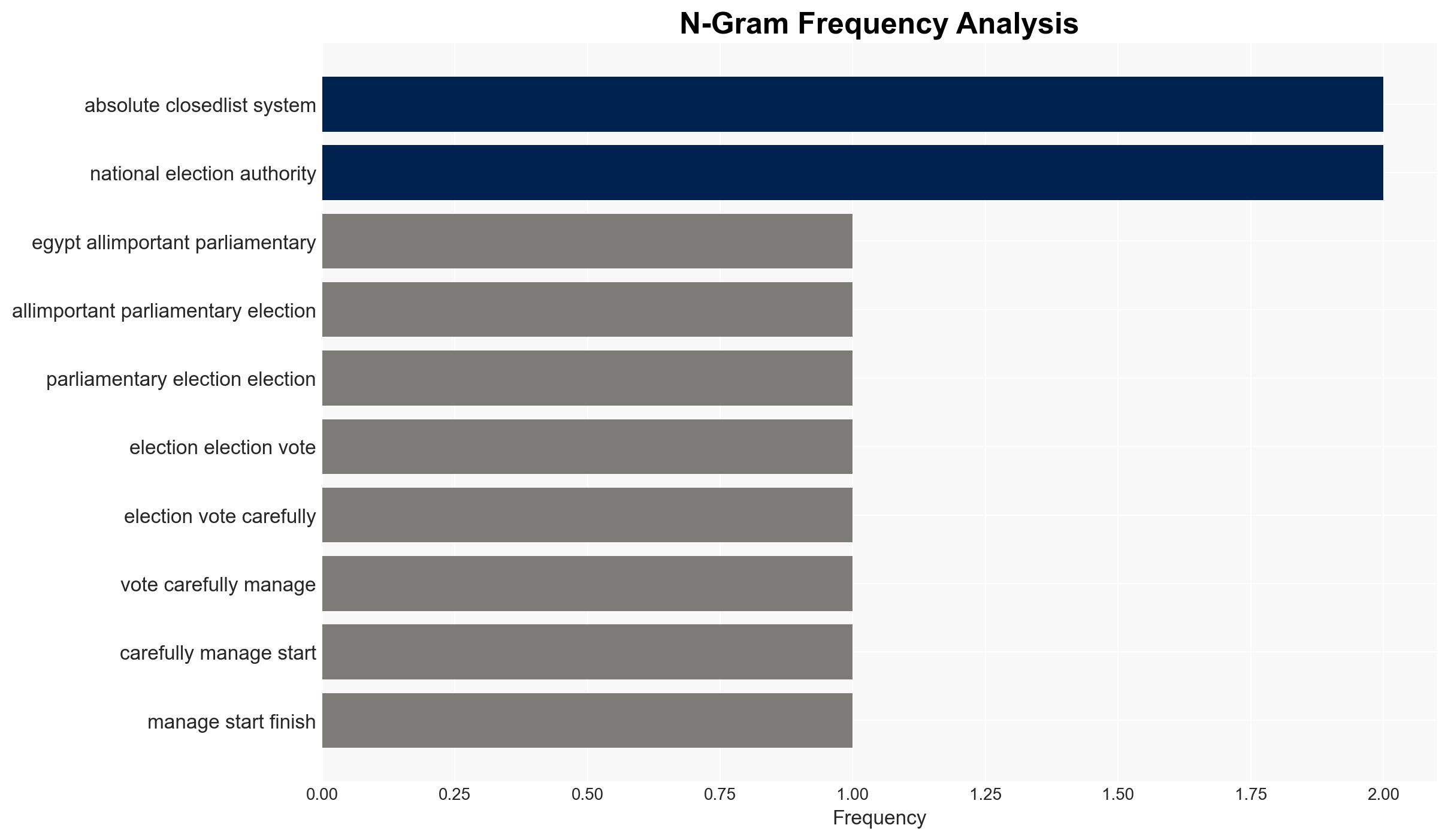Egypt’s Parliamentary Elections: A Managed Process Ensuring El-Sisi’s Extended Rule Amid Growing Public Disco…
Published on: 2025-11-27
AI-powered OSINT brief from verified open sources. Automated NLP signal extraction with human verification. See our Methodology and Why WorldWideWatchers.
Intelligence Report: Egypts all-important parliamentary elections arent elections at all
1. BLUF (Bottom Line Up Front)
The ongoing parliamentary elections in Egypt appear to be tightly controlled by President Abdel Fattah el-Sisi’s regime, with significant manipulation reported. This suggests a continuation of authoritarian governance, potentially extending el-Sisi’s rule indefinitely. The situation poses risks to political stability and may exacerbate public dissatisfaction. Overall confidence in this assessment is moderate.
2. Competing Hypotheses
- Hypothesis A: The elections are a genuine democratic process aimed at reflecting the will of the Egyptian people. Supporting evidence includes the formal structure of elections and the presence of multiple candidates. Contradicting evidence includes reports of voter intimidation, bribery, and pre-determined outcomes.
- Hypothesis B: The elections are a controlled process designed to maintain el-Sisi’s power and suppress opposition. Supporting evidence includes documented irregularities, manipulation tactics, and the regime’s history of suppressing dissent. Contradicting evidence is limited but could include isolated reports of fair practices.
- Assessment: Hypothesis B is currently better supported due to consistent reports of election manipulation and the regime’s track record of authoritarian practices. Indicators that could shift this judgment include credible reports of fair election practices or significant opposition success.
3. Key Assumptions and Red Flags
- Assumptions: The regime prioritizes political control over democratic legitimacy; public dissatisfaction is rising due to economic conditions; international scrutiny is limited or ineffective.
- Information Gaps: Detailed data on voter turnout and behavior; independent verification of election processes; insights into internal regime deliberations.
- Bias & Deception Risks: Potential bias from state-controlled media; deception through manipulated election reporting; cognitive bias towards assuming authoritarian intent without direct evidence.
4. Implications and Strategic Risks
The controlled nature of the elections could lead to increased domestic unrest and international criticism, affecting Egypt’s geopolitical standing and internal stability.
- Political / Geopolitical: Potential for increased international isolation or sanctions; strained relations with democratic allies.
- Security / Counter-Terrorism: Heightened risk of civil unrest or radicalization as public frustration grows.
- Cyber / Information Space: Possible increase in cyber operations targeting dissenters and controlling narratives.
- Economic / Social: Economic instability may worsen if political unrest disrupts markets or foreign investment.
5. Recommendations and Outlook
- Immediate Actions (0–30 days): Monitor election-related unrest; engage with international partners to assess potential diplomatic responses; gather intelligence on regime stability.
- Medium-Term Posture (1–12 months): Develop resilience measures for potential economic impacts; strengthen partnerships with regional allies to mitigate geopolitical risks.
- Scenario Outlook: Best: Limited unrest with gradual reforms; Worst: Widespread unrest and international sanctions; Most-Likely: Continued authoritarian control with sporadic unrest.
6. Key Individuals and Entities
- President Abdel Fattah el-Sisi
- Egyptian National Election Authority
- State-aligned networks and candidates
- Opposition groups (not clearly identifiable from open sources in this snippet)
7. Thematic Tags
National Security Threats, authoritarianism, election manipulation, political stability, Egypt, Abdel Fattah el-Sisi, voter intimidation, international relations
Structured Analytic Techniques Applied
- Cognitive Bias Stress Test: Expose and correct potential biases in assessments through red-teaming and structured challenge.
- Bayesian Scenario Modeling: Use probabilistic forecasting for conflict trajectories or escalation likelihood.
- Network Influence Mapping: Map influence relationships to assess actor impact.
Explore more:
National Security Threats Briefs ·
Daily Summary ·
Support us





